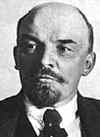The Italian Renaissance
The Forest

Under Construction
Petrarch
(1304-1374)
The Father of Humanism
Major Works
Sonnets
Core Ideas & Significance
- Wrote sonnets in the Italian vernacular to express his love for Laura
- Regarded Middle Ages as a time of ignorance and barbarity -- Criticized medieval scholasticism and argued that the purpose of philosophy was to promote "virtuous living"
- Obsessed with civilization of Ancient Rome and the revival of classical Latin texts
- Most important early figure in the promotion of Renaissance humanism

Quotes
"Christ is my God; Cicero is the prince of the language."








































